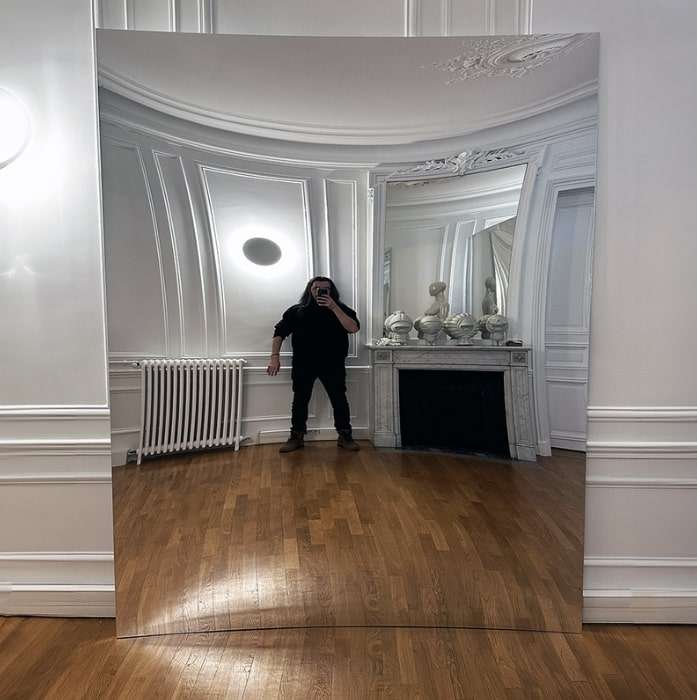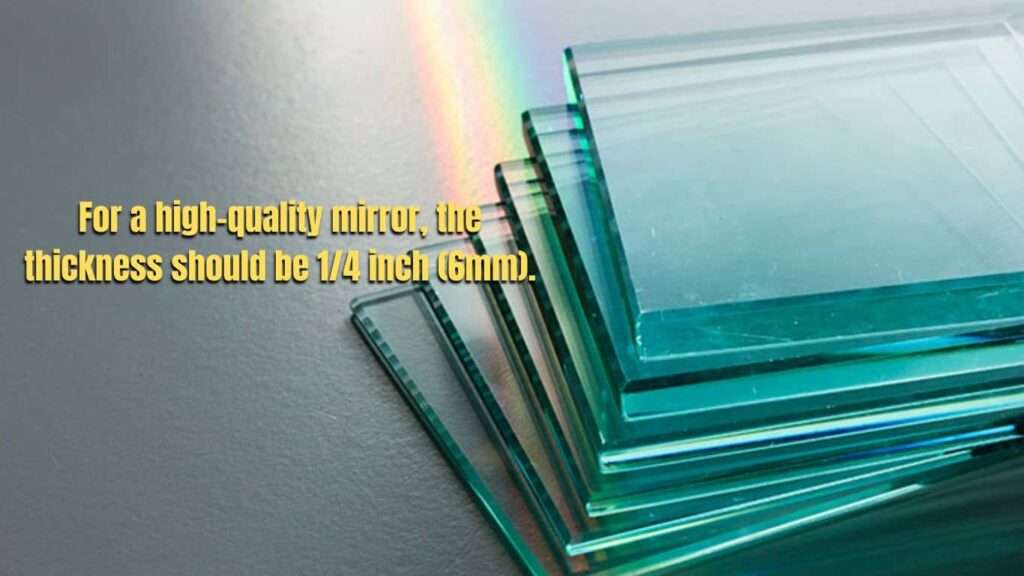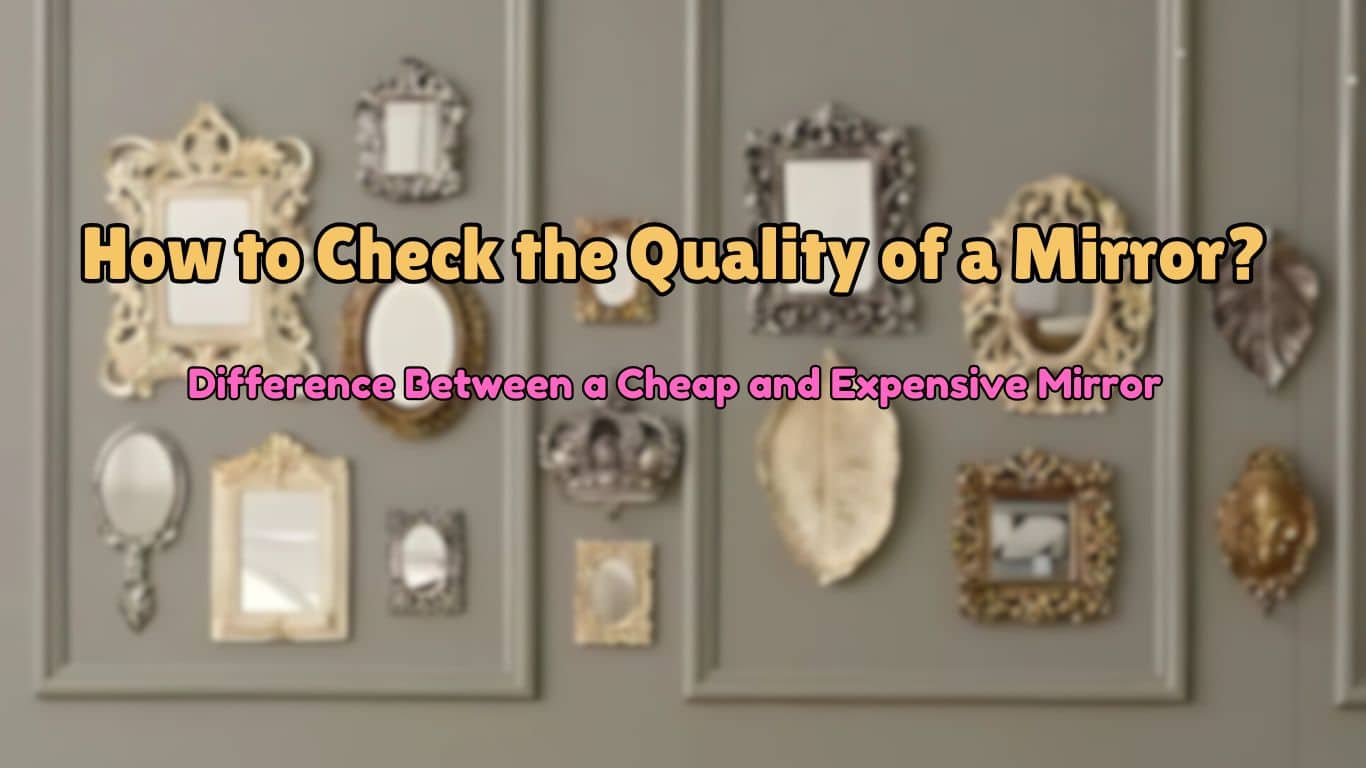A mirror is an essential element not only for functionality but also for house decoration. When buying a mirror for your house every person wants to get a high-quality mirror because a mirror is not something to be bought every day. But the question is how you can get a high-quality mirror that will be durable, Premium-grade build quality, and will show Flawless reflection.
I will not confuse you by telling you how the mirror is being manufactured and what elements are used to manufacture it. In this article, I will try to give you a cristal and clear guide by which you can easily judge whether a mirror is of high quality or not. At the end of the article, I have also discriminated between a cheap and expensive mirror that may help you to buy a good quality mirror at an affordable price.
Factors We Should Consider to Check the Quality of a Mirror
Most people focus on the fame’s style and design, the color of the frame, and basically, they judge a mirror’s quality based on decorative aspects when they go to buy a mirror and they ignore the reflection quality and durability of the mirror. Here are some factors you should consider to check the quality of the mirror.
Quality of Reflection
One of the most important factors that should be considered when going to buy a mirror. I know this is the most common factor that everyone knows but still, most people fail to check the quality of the mirror. When I say to check the quality of the mirror that means I want to say that the mirror you select should have a Flawless reflection with a Pristine clarity.
A mirror can also have a manufacturing defect that may lead to distortions or warping reflection. A distorted reflection occurs when the mirror is tilted outside/inside of the mirror. Although the chances of this defect are low still, you should not ignore this factor. To assess clarity, stand at a reasonable distance from the mirror (e.g., 4–6 feet) and check if the reflected image appears vivid and detailed, it will be a clear sign of a high quality mirror.

You can also check whether the mirror is tilted inward or outward direction by focusing on a particular object in the mirror and moving from one end to the other, if the reflection gets distorted it means the mirror is of low quality.
Thickness of the Mirror
To judge the quality of a mirror, thickness plays an important role. The thicker the mirror, the higher its durability. When I say a thicker mirror is a high-quality mirror, it doesn’t mean you too much thicker mirror is good to choose for your house. A too much thicker mirror will become a heaver which leads difficulty to in hanging/placing it safely.

What is the thickness of a high-quality mirror? Well, according to experts, a 1/4-inch (6 mm) thickness is typically preferred for a high-quality, durable mirror that maintains stability and clarity over time. The thickness reduce the possibility of breaking of the mirror.
Quality of the Glass’s Material
The quality of a glass material greatly impacts the mirror’s durability, reflection clarity, and overall appearance. During the manufacturing process, different grades of materials are used. To produce a high-quality mirror, premium-grade materials like pure and refined silica sand are used and carefully processed. These premium materials ensure scratch resistance and an even thickness for stability.
Low-quality glass, on the other hand, may have imperfections like bubbles, waves, or inconsistencies that can cause reflections to appear distorted. It is often less durable, prone to scratches, and lacks the refined finish of high-quality glass. It may seem hard to find out the glass material’s quality but you can ask about it to the shopkeeper.
Coating Material of Reflective Surface
Another factor you should consider before judging the quality of a mirror is the coating material of the reflective surface. Which type of material is used for coating the mirror’s surface is important to know before buying it because different materials have different abilities to reflect.
Materials like silver, dielectric, aluminum, and tin are generally used in the coating process of the mirror. If we talk about high-quality mirrors, typically silver or dielectric coatings are used that offer excellent reflection (up to 95-99%) and are durable when protected by additional layers.
Price And Quality
This is the last but not the least point to consider. In most cases, people fail to get a better quality product at a reasonable price. I have also experienced some times that I have bought a low-quality product with a high price, the price which is not reasonable to the product quality and I am sure you also faced this problem at least once in your life. Now in the case of mirrors, How do you know if a mirror is worth money and what are the factors you should consider to judge a mirror’s quality over price?
Well, this task can be somewhat time-consuming and tiring work but by doing this you can find the best quality and durable mirror at an affordable price. shop from reputable manufacturers or retailers that offer warranties. Look for mirrors made with premium glass and a good reflective coating, as these ensure durability and clarity. Additionally, compare prices online to find the best deals without compromising quality.

What should you ask the shopkeeper about the mirror before buying it?
Suppose you are in the market to buy a good mirror but now you don’t know how to negotiate so that you can buy a high quality mirror for your space. don’t worry here are the most common questions that you must ask the shopkeeper for choosing a high-quality mirror at an affordable price.
What type of glass is used? High-quality mirrors typically use float glass or low iron glass, which offers clearer reflection and less distortion.
What is the thickness of the mirror? The standard thickness ranges from 1/8 inch (3 mm) to 1/4 inch (6 mm). Thicker mirrors are generally more durable and stable.
What coating is applied for reflectivity? Most mirrors are coated with silver or aluminum. Silver coatings provide a brighter reflection, while aluminum is more resistant to corrosion. But if you want to buy a more expensive mirror you can consider the mirror with silver or dielectric coatings.
Is there a protective layer against scratches or corrosion? Many high-quality mirrors come with a protective coating that helps resist scratches and prevents corrosion extending the mirror’s lifespan.
What is the warranty or return policy? Reputable retailers often provide warranties ranging from one year to a lifetime, covering manufacturing defects and offering a return policy for unsatisfactory products.
Can I see customer reviews or ratings? Customer reviews can typically be found on the retailer’s website or third-party review platforms, helping gauge the quality and satisfaction of previous buyers.
Are there any specific maintenance instructions? To maintain a mirror’s clarity, the different mirror needs different treatment so ask the shopkeeper about it.
Do you offer custom sizes or shapes? (If you want a customized mirror) Many shops offer custom mirrors, allowing customers to specify dimensions and shapes to fit their space and style preferences.
What is the Difference Between a Cheap and Expensive Mirror?
| A Cheap Mirror | An expensive Mirror | |
| Material Quality | A cheap mirror is generally made with lower-grade glass and materials that may distort reflections or degrade quickly. | An expensive mirror is generally crafted from high-quality float glass or low iron glass that ensures clearer reflections and greater durability. |
| Reflective Coating | It may use inferior coatings that can wear off quickly, leading to reduced reflectivity and potential discoloration. | Usually feature superior coatings (like silver or high-quality aluminum) that enhance reflectivity and resist corrosion. |
| Thickness | Often thinner, which can make them more prone to warping or breakage. | Generally thicker, providing added strength, stability, and a more premium feel. |
| Craftsmanship | May have rough edges and inferior finishing, resulting in a less polished appearance. | Exhibit meticulous craftsmanship, with polished edges and attention to detail in design and finish. |
| Durability | May not withstand wear and tear over time, leading to scratches and fading. | Built to last longer, with better resistance to scratches and other damage. |
| Design and Aesthetics | Often basic in design, lacking unique features or styles. | Available in a variety of stylish designs, shapes, and finishes, enhancing the overall decor. |
| Warranty and Support | Typically come with limited or no warranty, reflecting lower confidence in quality. | Often include comprehensive warranties and better customer support. |

